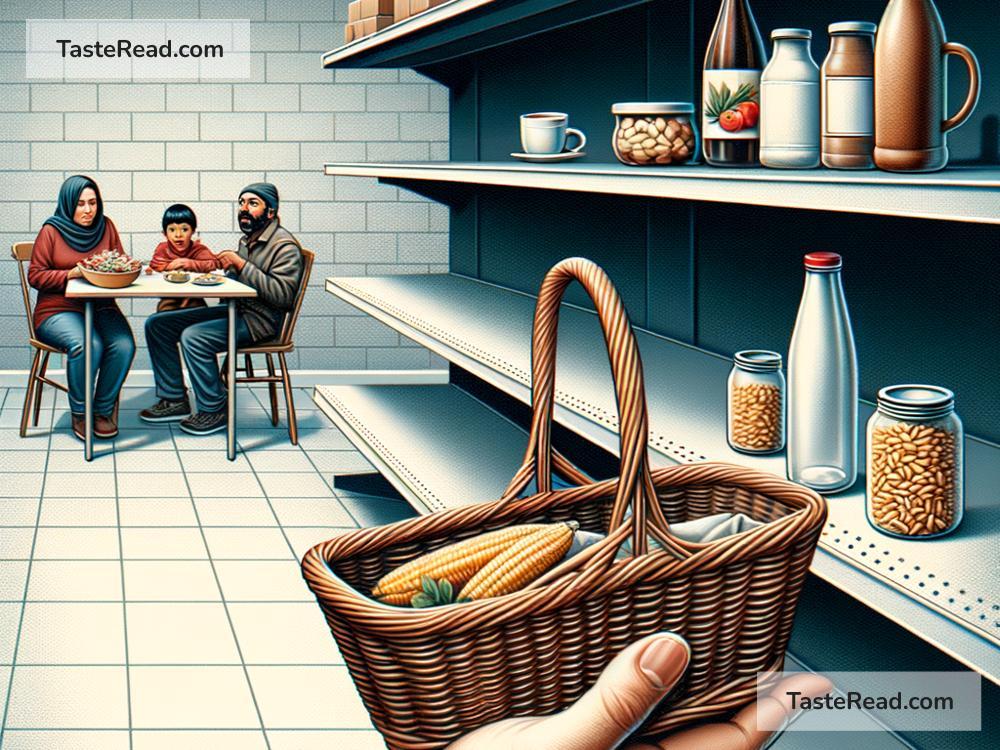The Impact of Food Shortages on Nutrition
Food is essential for life. It gives us the energy to work, play, and grow. It also provides nutrients that keep our bodies healthy. However, when there is not enough food, people face big challenges. Food shortages can lead to serious problems for nutrition and overall health, affecting communities and even entire countries. In this article, we will take a simple look at how food shortages impact nutrition and why it is important to address this issue.
What Are Food Shortages?
Food shortages happen when there is not enough food to meet the needs of a population. This can occur for many reasons, such as natural disasters, climate change, war, economic crises, or problems in agriculture. When crops fail due to drought or floods, for example, there is less food to sell, eat, and share. Similarly, conflicts in certain areas can block supplies of food, causing disruption and hunger for many people.
How Do Food Shortages Affect Nutrition?
Nutrition refers to the process of getting the right nutrients from food to help the body grow and stay healthy. Nutrients include vitamins, minerals, proteins, carbohydrates, and fats. Each nutrient serves an important purpose. For example, protein helps build muscles, while vitamins like Vitamin C strengthen the immune system.
When food shortages occur, people often cannot access the variety of foods they need for proper nutrition. They may eat less or rely on a limited number of foods that do not provide all the necessary nutrients. Over time, this can lead to malnutrition, a condition caused by not getting enough or the right kinds of nutrients.
Signs of Malnutrition
Malnutrition has two main forms: undernutrition and overnutrition. Undernutrition happens when people do not eat enough food or the right kinds of food. This often leads to problems such as:
-
Stunted Growth: Children who lack proper nutrition may stop growing normally. They may become shorter and weaker than other kids their age.
-
Weak Immune System: Without enough vitamins and minerals, the body struggles to fight diseases, making people more likely to get sick.
-
Low Energy: Undernourished people often feel tired and unable to focus on daily tasks like school or work.
Overnutrition, on the other hand, happens when people eat too many unhealthy foods high in calories but low in nutrients. This can happen during food shortages if the only accessible foods are cheap, processed options. Overnutrition can cause health problems like obesity and diabetes.
Vulnerable Groups
Food shortages affect everyone, but some groups face greater risks. Children are especially vulnerable because they are still growing and need more nutrients to develop properly. Pregnant and breastfeeding women also need extra nourishment to stay healthy and support their babies’ growth. In addition, elderly people with weaker immune systems may struggle more when food supplies are low.
People living in poverty are often hit the hardest during food shortages. They may already have limited access to nutritious food, and food shortages only make their situation worse. When prices for basic foods go up during a crisis, many families cannot afford to buy what they need.
Long-Term Effects of Food Shortages on Nutrition
Food shortages can have long-term effects, especially on children. If young children experience malnutrition during critical stages of growth, they may suffer permanent physical and mental damage. A lack of protein and essential nutrients can affect brain development, making it harder to learn and succeed in school later on.
For adults, malnutrition can lead to chronic health issues, such as heart disease, weakened bones, and a reduced ability to work. This can hurt not only individuals but also communities and economies. When large groups of people are unable to work or study due to poor health, progress slows, and opportunities are lost.
Solutions to Prevent and Reduce Food Shortages
There are ways to fight food shortages and improve nutrition. Some solutions include:
-
Investing in Agriculture: Supporting farmers with better tools, seeds, and training can help them grow more food, even in difficult weather conditions.
-
Building Food Reserves: Governments can store surplus food in good years to use during bad years, helping to smooth out shortages.
-
Improving Food Distribution: Making sure food is transported efficiently to areas in need can reduce waste and ensure people have access to essential supplies.
-
Promoting Education: Teaching people about balanced diets and nutrition can help them make healthier food choices, even during tough times.
International organizations like the United Nations also play an important role in helping countries deal with food shortages. Programs that provide emergency food aid and encourage sustainable farming practices can make a big difference.
Conclusion
Food shortages are a serious problem with significant impacts on nutrition and health. When people do not have enough food or access to nutritious options, they face risks like malnutrition, illness, and weakened communities. Solving food shortages requires cooperation from governments, organizations, and individuals to ensure that everyone has access to the food they need.
To build a healthier world, it is important to focus on sustainable solutions that prevent food shortages and promote nutrition for all. By working together, we can help ensure that no one goes hungry and that everyone can live a healthy, productive life.


